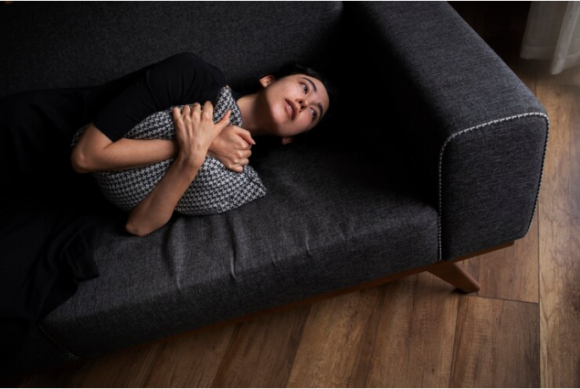Bipolar disorder, also known as manic-depressive illness, is a mental health condition that causes extreme shifts in mood, energy levels, and behavior. It is a chronic disorder that affects millions of people worldwide and can have a significant impact on one’s daily life. To overcome this disorder you should consult with the best psychiatrist or take admission In the best mental hospital in Lahore.
Types of Bipolar Disorder
There are three main types of bipolar disorder:
- Bipolar I disorder: This type is characterized by manic episodes, which can last for at least a week and may require hospitalization. Depressive episodes may also occur in bipolar I disorder, but they are not necessary for diagnosis.
- Bipolar II disorder: In this type, individuals experience both hypomanic and depressive episodes, but the highs are less severe than those of bipolar I disorder.
- Cyclothymic disorder: This type is a milder form of bipolar disorder and is characterized by frequent but less severe mood swings between hypomania and depression.
It is important to note that the symptoms of each type can vary in severity, frequency, and duration from person to person. It is also possible for individuals to experience symptoms of more than one type of bipolar disorder, which is known as a “mixed state.”
Symptoms of Bipolar Disorder
This disorder is characterized by episodes of extreme mood swings that can include manic, hypomanic, and depressive episodes. These episodes may last for days, weeks, or even months and can significantly impair an individual’s ability to function in daily life. Some common symptoms of bipolar disorder include:
- Manic episodes: Elevated mood, increased energy levels, inflated self-esteem, decreased need for sleep, racing thoughts, impulsive behavior, and reckless decision-making.
- Hypomanic episodes: Similar to manic episodes but with less severe symptoms. Individuals may still experience an increase in energy and productivity but are less likely to engage in risk-taking behaviors.
- Depressive episodes: Persistent feelings of sadness, hopelessness, lack of energy, changes in appetite and sleep patterns, difficulty concentrating, and thoughts of self-harm or suicide.
It is essential to note that these symptoms may vary from person to person and external factors such as stress or substance abuse can influence it. Therefore, it is crucial to seek professional help if you or someone you know is experiencing symptoms of this disorder.
Causes of Bipolar Disorder
The exact cause of this disorder is unknown, but many people believe that a combination of genetic, environmental, and neurochemical factors may play a role. Some risk factors that may increase the likelihood of developing bipolar disorder include:
- Family history: Individuals with a family history of this disorder are more likely to develop the condition themselves.
- Stressful life events: Traumatic experiences, major life changes, or ongoing stress can trigger episodes of this disorder in susceptible individuals.
- Substance abuse: Substance abuse can also increase the risk of developing this disorder. As drugs and alcohol can disrupt brain chemistry and increase the likelihood of mood swings. So to overcome drug addiction take admission in the best rehabilitation center.
Treatment for Bipolar Disorder
While there is no cure for this disorder, it can be managed effectively through a combination of medication, therapy, and lifestyle changes. Treatment may include:
- Medications: Mood stabilizers, antipsychotics, and antidepressants may be prescribed to help manage symptoms of this disorder.
- Therapy: Psychotherapy, such as cognitive-behavioral therapy or interpersonal therapy, can help individuals learn coping strategies and manage their symptoms.
- Lifestyle changes: Consistent sleep patterns, a healthy diet, regular exercise, and stress management techniques can all help manage symptoms of bipolar disorder.
It is crucial to work closely with a mental health professional to find the best treatment plan for your individual needs. With proper management, individuals with this disorder can lead fulfilling lives and achieve stability and balance in their moods. If you or someone you know is struggling with bipolar disorder, do not hesitate to seek help and support.
Remember, you are not alone, and there is always hope for recovery. Overall, it is important to raise awareness about this disorder, reduce the stigma surrounding mental health conditions, and promote understanding and support for those living with this complex disorder.
Conclusion
In conclusion, bipolar disorder is a serious mental health condition that requires proper diagnosis and treatment. It can have a significant impact on an individual’s life, but with the right support and management strategies, individuals with this disorder can lead fulfilling and productive lives. If you or someone you know is experiencing symptoms of this disorder, do not hesitate to seek help and support from a mental health professional.
Remember, recovery is possible, and no one has to face this disorder alone. Let us continue to educate ourselves and others about this condition and work towards a more understanding and inclusive society for those living with this disorder. So, it is important to take care of our mental health just as we do for our physical health.
So, it is crucial to seek professional help if you are experiencing symptoms of this disorder. Remember, recovery and stability are possible with the right support and treatment. Let us continue to educate ourselves and others about this complex disorder. We should work towards a more compassionate and understanding society for those living with it.
FAQs
Can bipolar disorder be cured?
Currently, there is no cure for this disorder. However, it can be effectively managed with proper treatment and self-care strategies.
Is it possible to have a successful career with bipolar disorder?
Yes, individuals with this disorder can lead fulfilling careers with the right management and support system in place. Many successful professionals have been diagnosed with this disorder.
Can children develop bipolar disorder?
While rare, it is possible for children to develop this disorder. It is often difficult to diagnose in children, and symptoms may manifest differently than in adults.
Can medication alone treat bipolar disorder?
Medication can be helpful in managing symptoms of this disorder. But it is usually most effective when combined with therapy and lifestyle changes.
Can bipolar disorder be prevented?
At this time, there is no known way to prevent this disorder. However, early intervention and proper treatment can help manage symptoms and improve overall quality of life for individuals living with the condition.




